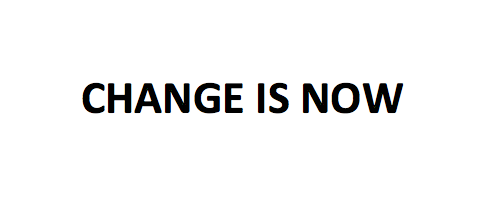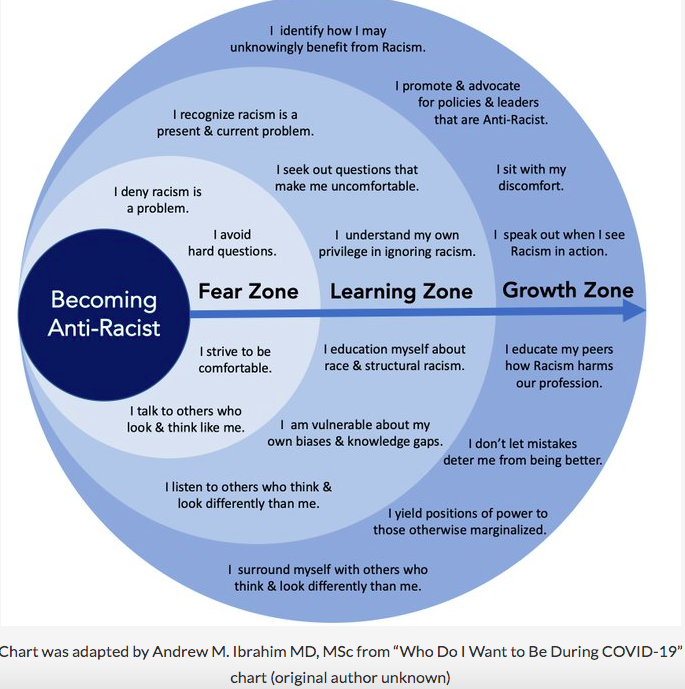You & I--We Can Be Better
There’s a lot to be learned. A lot that must be improved. A lot of growth to be made. And, a lot of healing to be done.
It’s a choice to be part of the solution. And, it starts with action. We all don’t have to do or engage in the same thing—but we must strive to do something.
"I am a white person and I fully acknowledge that I have work to do to shift the ways I think about and approach race. All white people do. We need to unlearn the deep-rooted habits and actions that perpetuate injustice. We need to unlearn the patterns that continue to contribute to systematic racism.” -Jackie Saffert
There’s no perfect roadmap for the critical change needed to put an end to the racial discrimination and racial violence and racial injustices that currently plague our nation.
And yet, there are many who have spoken out and shared resources for learning, considering, listening, and acting.
Some resources, opinions, viewpoints may resonate with you, and some may not. Content may land on each of us uniquely.
I have started to compile a list of resources that resonated, challenged a new perspective, made me think or question, opened a new avenue, elicited discomfort, inspired motivation. I will continue to add to this in the coming weeks.
Take with you what resonates with you—what will help you grow as an ally—wherever you are in your change process.
The Center for Racial Justice in Education provides a comprehensive list of resources, tip sheets, opinion pieces, workbooks, etc. on how parents, caregivers, siblings, teachers, social workers, therapists can talk to children about racism, police brutality, our current political climate, and being actively anti-racist.
Raising Race Conscious Children is a resource and a platform to talk about race. It offers a list of strategies to engage with, as well as real-life examples of how to do so. It also offers webinars and workshops for anti-racist white people by race conscious practitioners.
“One of the best ways we can begin to fight racism is by simply acknowledging it. From there we can start to talk about it with our toddlers. Let’s give our kids the tools they need to understand the world they live in, with all of it’s profound differences and colors. Let’s teach them the words they need to be able to talk about these differences with love, respect and empathy. Let’s make room for their questions and all of the colors they notice.” - Why I teach my 2-year-old about race
Check out rachel.cargle on Instagram whose mission is: “building an intellectual legacy through teaching, storytelling & critical discourse.” A thought provoking resource that helped me consider the ways in which harm is perpetuated in present discourse.
Read How you can be an ally in the fight for racial justice which offers concrete steps of what you, I, we, communities can be doing to be allies.
“No one becomes “not racist,” despite a tendency by Americans to identify themselves that way. We can only strive to be “antiracist” on a daily basis, to continually rededicate ourselves to the lifelong task of overcoming our country’s racist heritage. To build a nation of equal opportunity for everyone, we need to dismantle this spurious legacy of our common upbringing. One of the best ways to do this is by reading books. Not books that reinforce old ideas about who we think we are, what we think America is, what we think racism is. Instead, we need to read books that are difficult or unorthodox, that don’t go down easily. Books that force us to confront our self-serving beliefs and make us aware that “I’m not racist” is a slogan of denial.” - Ibram X. Kendi
Explore An Anti-Racist Reading List by Ibram X. Kendi which offers books to help America transcend its racist heritage, one reader at at time.
Here are a few links to lists of documentaries to watch: 10 Documentaries To Watch About Race Instead Of Asking A Person Of Colour To Explain Things For You; http://www.pbs.org/black-culture/explore/10-black-history-documentaries-to-watch/
“You don’t have to become someone you’re not, but don’t disengage. Don’t just unfriend people on social media because they’re racist and think you’ve done anything but make yourself more comfortable. Uncle John at the picnic and the Deacon at your church and that kid you supervise at work are the people whom you can influence — though maybe not as profoundly or immediately as you’d like. They are your community; we have a social responsibility to one another — and to the broader suffering our continued complicity in racism creates.” -Kimberly Dark
Raise awareness and talk about/acknowledge ongoing and historical roots of racial violence and oppression of Black and Brown communities with family, friends, colleagues, peers, students, etc.
Help those you love, communities you are a part of, by encouraging them to be better. Read 6 Things White People Can Do To Reach Friends and Family Members to End Racism for ideas on how you can make inroads in your network.
Know our history: History of Police Brutality in America; Colorlines; The Case for Reparations.
Listen to lived experiences of racism, brutality, discrimination: “The Condition of the Black Life is One of Mourning”
This is far from exhaustive or complete. It’s just one possible place to start. I will continue to update as I find content that resonates. Please share with us what you’ve found, too.

